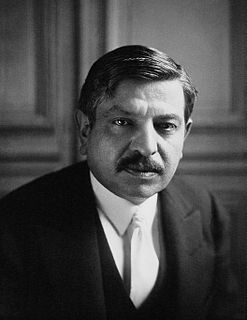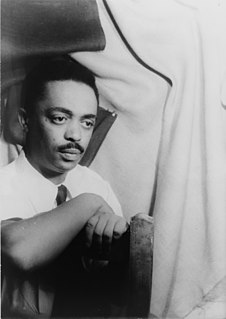A Quote by Daniel Fried
My 40 years in the foreign service and the careers of many of my friends became associated with the fall of the Soviet Empire and the putting in order of what came after - the building of a Europe whole, free, and at peace. It`s hard to recall today how improbable victory in the Cold War appeared.
Related Quotes
In fact, we haven't ever really recalibrated our foreign policy commitments since the end of the Cold War. We still have alliances throughout Asia and across Europe that were devised to tame the Soviet Union, which, last time I checked, ceased to exist more than 20 years ago. Today, of course, we have a commitment to go to nuclear war with Russia in case Russia invades Latvia. To me, that's complete and utter nonsense. There ought to be a reconsideration of our posture in every region of the world.
The London I entered was a great bustling metropolitan city at war, an imperial power fighting to hold on to that empire. And the teeming colonial subjects of that empire did not, on the whole, want England to lose that war, but they also did not want the empire to emerge unchanged from it. This, for very many of us, was the hard dilemma.
Kennedy was significantly different than Eisenhower before him, and different from Johnson after him. So those three years were the beginning of a détente with the Soviet Union, a new feeling for peace, a seeking out of a new ally with the Soviet Union - the end of the Cold War, as Kennedy called it in his American University speech.
We fully realize today that victory in war requires a mighty united effort. Certainly, victory in peace calls for, and must receive, an equal effort. Man has learned long ago, that it is impossible to live unto himself. This same basic principle applies today to nations. We were not isolated during the war. We dare not now become isolated in peace.
Those who remember Washington's cold war culture in the 1980s will recall the shocked reactions to Reagan's intervention. People interested in foreign policy were astonished when in 1985 he met alone at Geneva - alone, not a single strategic thinker at his elbow! - with the Soviet Communist master Gorbachev.
The twentieth century had dispensed with the formal declaration of war and introduced the fifth column, sabotage, cold war, and war by proxy, but that was only the begining. Summit meetings for disarmament pursued mutual understanding and a balance of power but were also held to learn the strengths and weaknesses of the enemy. The world of the war-or-peace alternative became a world in which war was peace and peace war.
What we know is that the environmental movement had a series of dazzling victories in the late '60s and in the '70s where the whole legal framework for responding to pollution and to protecting wildlife came into law. It was just victory after victory after victory. And these were what came to be called 'command-and-control' pieces of legislation.
To most people in the U.K., indeed throughout Western Europe, space exploration is primarily perceived as 'what NASA does'. This perception is - in many respects - a valid one. Superpower rivalry during the Cold War ramped up U.S. and Soviet space efforts to a scale that Western Europe had no motive to match.
For many years prior to the 1990s, European integration was embraced and supported by a large majority of citizens. A united Europe, bound by commonly-held democratic values, was perceived as an essential and effective buffer against the Soviet empire. A united Europe made a repeat of the First and Second World Wars almost unthinkable.
To most people in the UK, indeed throughout Western Europe, space exploration is primarily perceived as 'what NASA does'. This perception is - in many respects - a valid one. Superpower rivalry during the Cold War ramped up US and Soviet space efforts to a scale that Western Europe had no motive to match.
If you look at the Gulf War or new military technologies, they are moving towards cyberwars. Most video-technologies and technologies of simulation have been used for war. For example, video was created after the Second World War in order to radio-control planes and aircraft carriers. Thus video came with the war. It took twenty years before it became a means of expression for artists.






































